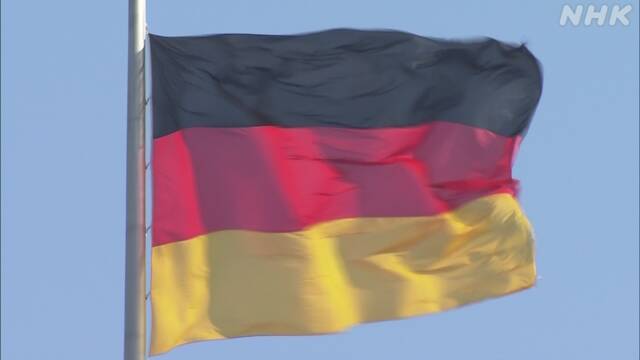Following Russia's military invasion of Ukraine, the German government rushed to break away from Russia's dependence on energy, including gas imports with Qatar, the world's leading LNG = liquefied natural gas exporter. Agreed to strengthen cooperation.
Germany, Europe's largest economy, has 55% of its natural gas imported from Russia, but the challenge is to switch suppliers in order to move away from dependence on Russia following the military invasion of Ukraine. It has become.
On the 20th, the German government announced that it had signed a document to strengthen energy-related cooperation, including the import of LNG, in line with the visit of Qatar's chief Tamim, one of the world's leading LNG exporters, to Germany.
Qatar's Foreign Minister Muhammad told German media that exports are expected to begin again next year, although the documents exchanged between the two countries do not include details such as when LNG acceptance will begin. increase.
Regarding the agreement with Qatar, German Chancellor Olaf Scholz said at a press conference, "We will secure a sufficient amount of LNG. This is a big big step forward. Qatar will be a pillar of Germany's strategy." Showed hope for progress.
Germany has a certain prospect of securing gas to replace Russian products, but there is no base in Japan that accepts LNG from overseas, and we are urgently responding by starting construction of facilities.
Former German Prime Minister to retire as chairman of Russia's largest oil company
Mr. Schroeder, a former German Prime Minister who has served as chairman of Russia's largest oil company "Rosneft" for five years and has been criticized for being closer to Russia, announced on the 20th that he intends to retire from the chairmanship. ..
According to the "Rosneft" announced, former Chancellor Schroeder has said that "it has become impossible to extend his term", but no detailed reason is given.
Former Chancellor Schroeder remained in a key position in Russia's energy-related companies, such as "Rosneft," even after Russia's military invasion of Ukraine, and criticism was rising in Germany.
In response to growing criticism, a committee of the German Parliament passed an unusual motion against the former Prime Minister on the 19th to suspend the right to use offices in the parliament.
Prime Minister Olaf Scholz also repeatedly called on the former Prime Minister to break ties with Russia.

